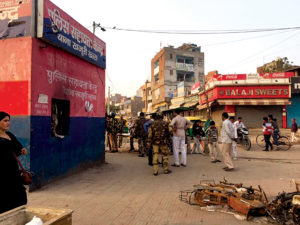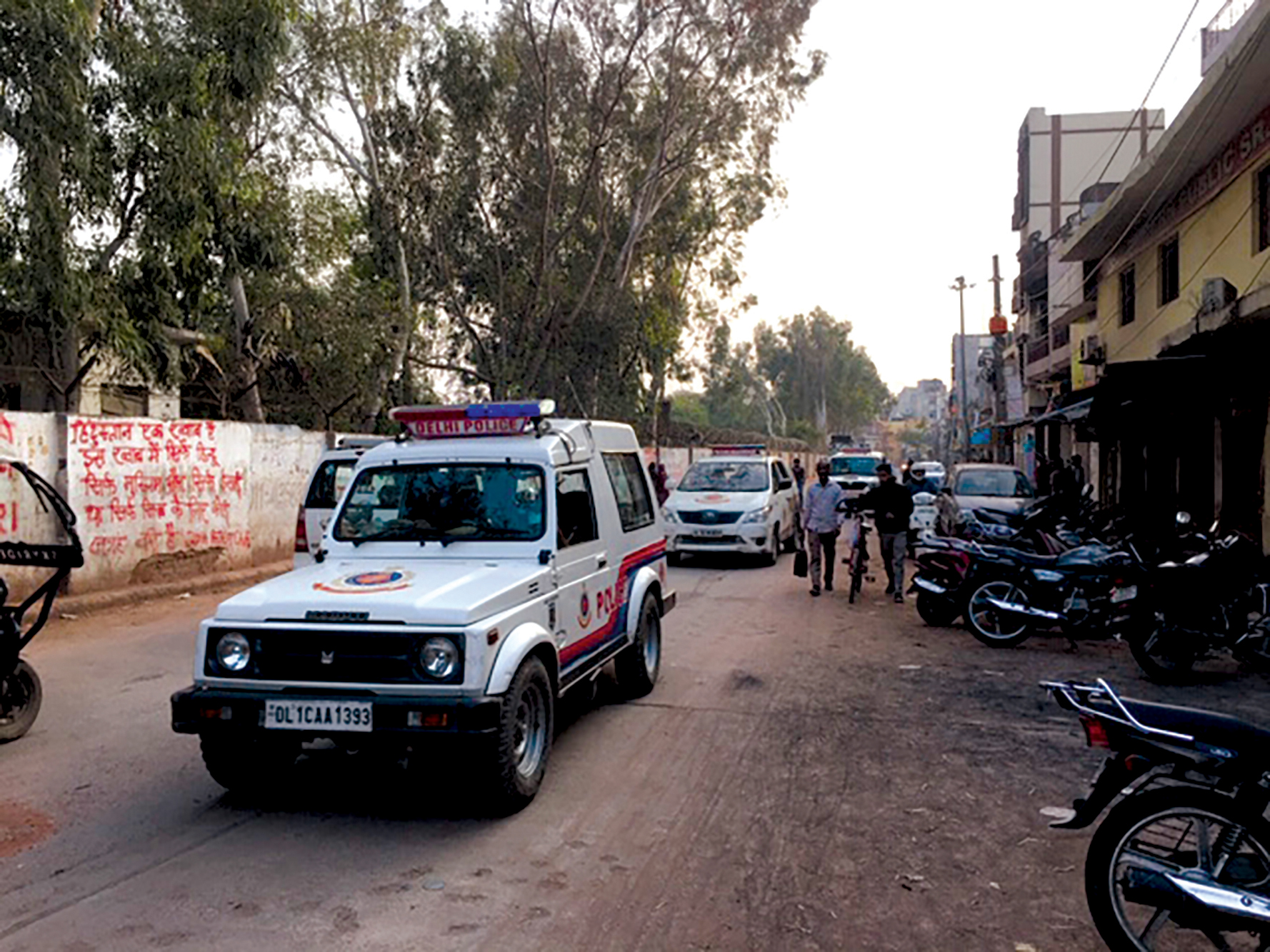Former commissioners of police express their disappointment in the way riots in Delhi were handled. They stop short of calling it ‘deliberate’ but surely ‘avoidable’ had the cops performed their duty
LANES IN riot-affected North East Delhi look war-torn, nothing but half-burnt houses and mangled automobiles remain on the streets, the devastation staring you in the face “That happens when communal riots go unchecked,” says former Delhi Police commissioner Neeraj Kumar. Irrespective of their faith, Hindu and Muslims suffer. Locals with one voice say, one of the main reasons that the riots went on for so long is because of police inaction.
“I saw the police on the night of 25th February. Instead of taking action, they went back. It was orchestrated,” declares 70-year-old patriarch Thakur Mangal Singh Parihar, sporting a white handlebar moustache. He is one of the most respected elders in Shivpuri, a predominantly Hindu locality that suffered many casualties. He owns many shops and members of his extended family include lawyers as well as a judge. He left the house and moved to a more secure locality. Many of his neighbours couldn’t, some of them are now dead.
It’s no secret that the locals, irrespective of their faith, blame the police for not coming to their rescue, and this according to them cannot be mere negligence, but reflects complacency. Two of the former Delhi Police commissioners, Ajay Raj Sharma and Neeraj Kumar, just stopped short of calling it a premeditated or a deliberate act. But they fail to understand why Delhi Police — considered one of the best in the country — was so unprepared for such a scenario. They believe it was inevitable given the hate speeches and the rhetoric surrounding Shaheen Bagh.

Retired Special Commissioner of Delhi N Dilip Kumar, puts it succinctly, “There were tremors”: the complicity of the police in the JNU and Jamia episodes, and then the hate speech by BJP leaders went unchecked. Therefore, an earthquake — communal riots — were on the cards. It was not popular outrage but was “orchestrated” as it was “only confined to the North East district”, which was ‘tactical’.”
Neeraj Kumar says that the systemic failure stems from the fact that police are treated as a “political tool — a very handy one.” He points to what the Supreme Court in the Prakash Singh case had said on police reforms — that the police being free from the clutches of politicians is the essence of democracy. If that doesn’t happen, the results can be disastrous–the Delhi riots are a standing example.
Dilip Kumar compares the riots in Delhi with those that took place in Gujarat in 2002, where the political masters were in touch with the subordinates, bypassing the police leadership. He says that there is a growing disconnect between the seniors and the subordinates in Delhi Police for the same reason. “Kapil Mishra is just a political tool,” he says and adds that there were ample indications, the ‘tremors’.
He knows Patnaik and describes him as a soft-spoken gentleman and attributes the whole episode to a “miscalculation” as most of the rioters were “outsiders”. “No senior police officer would collude with the politicians to this extent,” he says. However, he demands thorough investigations into the riots under court supervision, saying “Under these circumstances, there cannot be an impartial investigation by the Delhi Police.”
The outgoing police commissioner, Amulya Kumar Patnaik who is often described as one of the worst Commissioner to have led the Delhi Police by his seniors, peers and subordinates is looked upon as ‘spineless’ by them.
Neeraj Kumar, the first DCP of North East district from 1988-89, knows the area like the back of his hand. However, he doesn’t want to get personal about his successor but is open to talking about “What ought to have been done” and wasn’t.
The Delhi Police is guilty of glaring inertness if not complacency. Neeraj Kumar points to the failure at various levels. The first was the failure of the local intelligence that comes under the Special Branch of the Delhi Police. The preparations for the riots, he explains, seem to be “going for a long time” given that they had collected stones, catapults, etc. “The local intelligence should have alerted the police that something was cooking” he says. Something that was obvious to the common people should not have caught the police unaware.
Kumar calls for routine, yet effective measures that could have been taken to stop the situation spiralling out of control, like preventive arrests of history sheeters and clamp down on the rhetoric, including other measures from the rulebook. And then there were “open threats” — that’s how Kumar describes hate speeches. “It was very obvious and something should have been done about it,” says Neeraj Kumar.
“They should have prepared a riot plan for the area — where and how many forces to be deployed, assign duties to police functionaries and increase the police presence in the area. There was no plan, and so when the riots happened, only confusion prevailed,” amongst the ranks of the Delhi Police.

Kumar sums up by adding, “It might not be deliberate but the Delhi Police opted for a safe approach”. So many people were killed, but not a single bullet was fired by the police. “No bullet fired, no inquiries,” says Kumar. Delhi Police’s safe approach, if that’s what it was, jeopardised the safety of a whole district, leading to the death of 49 innocent people that could have been avoided.
All said and done, “No one can force a police officer to do illegal acts. Period.” asserts Neeraj Kumar
Ajay Raj Sharma, an IPS officer from Uttar Pradesh cadre who was handpicked by the Atal Bihari Vajpayee government to be the commissioner of Delhi Police, said, “We as police officers think that after external aggression, communal riots are the worst thing that can happen to a country.” He has already made it clear that he would have not allowed Shaheen Bagh protests to disrupt traffic, he also would have arrested those who made inflammatory speeches, even if they happen to be a minister.
Upon being asked as to how he would have dealt with the pressure exerted by the political leadership for a job that could be seen as illegal and unconstitutional if he were a commissioner of Delhi Police, Shama cuts short the questions to say, “I do my job. I did my job according to my choices,” he asserts. He qualifies his response by saying he’s an “outsider” but says “I am not happy — much more was required to be done.” He didn’t want to comment on Patnaik and ends by saying “Everyone knows the situation (in Delhi Police).”





